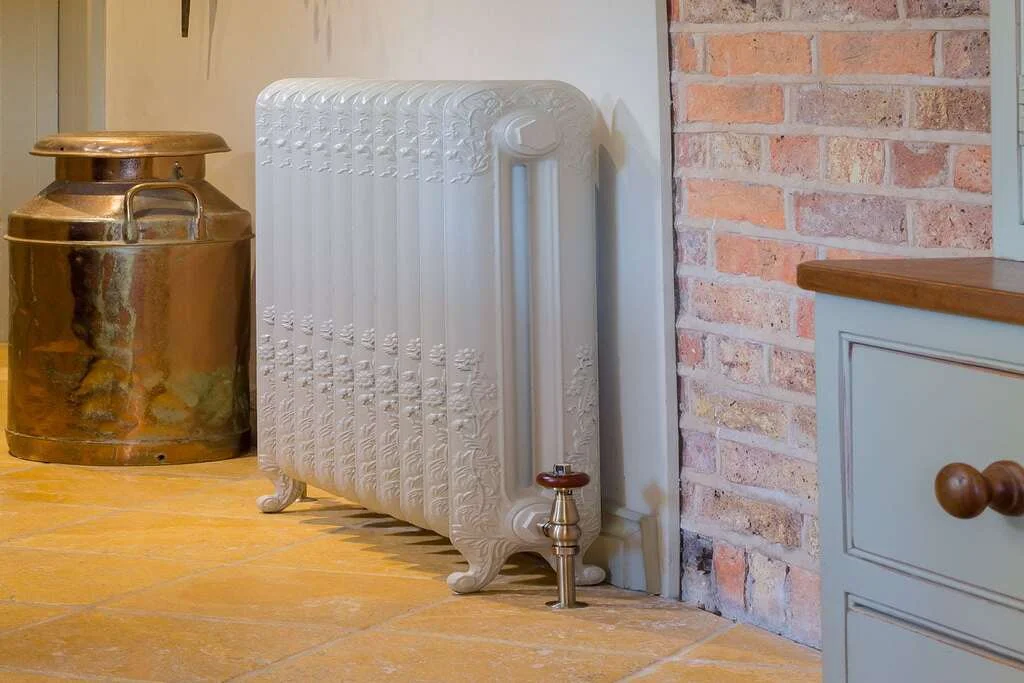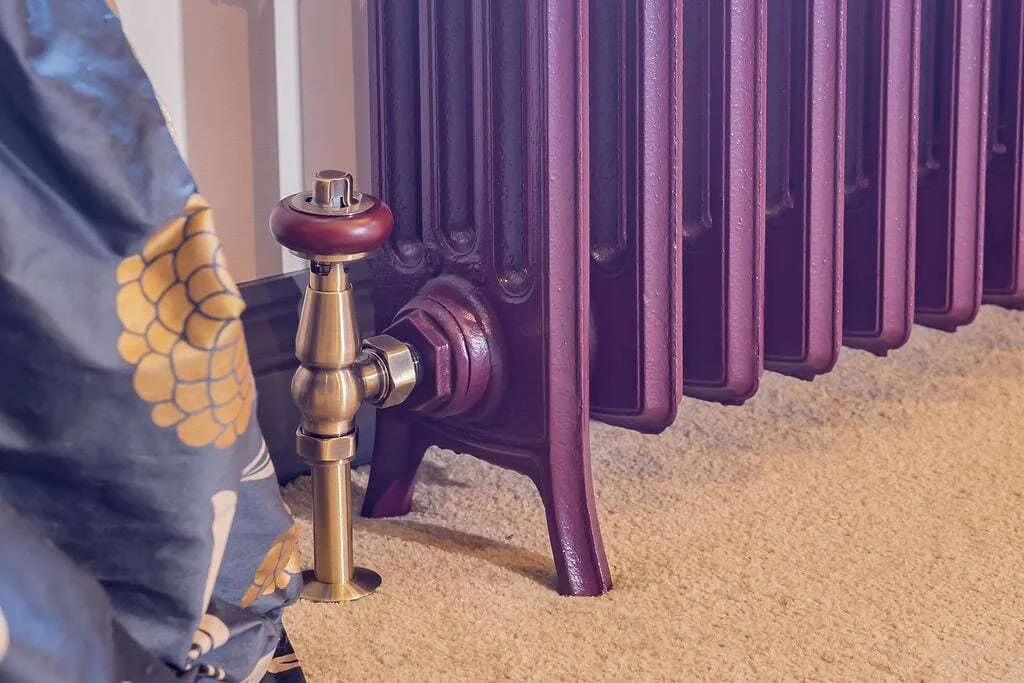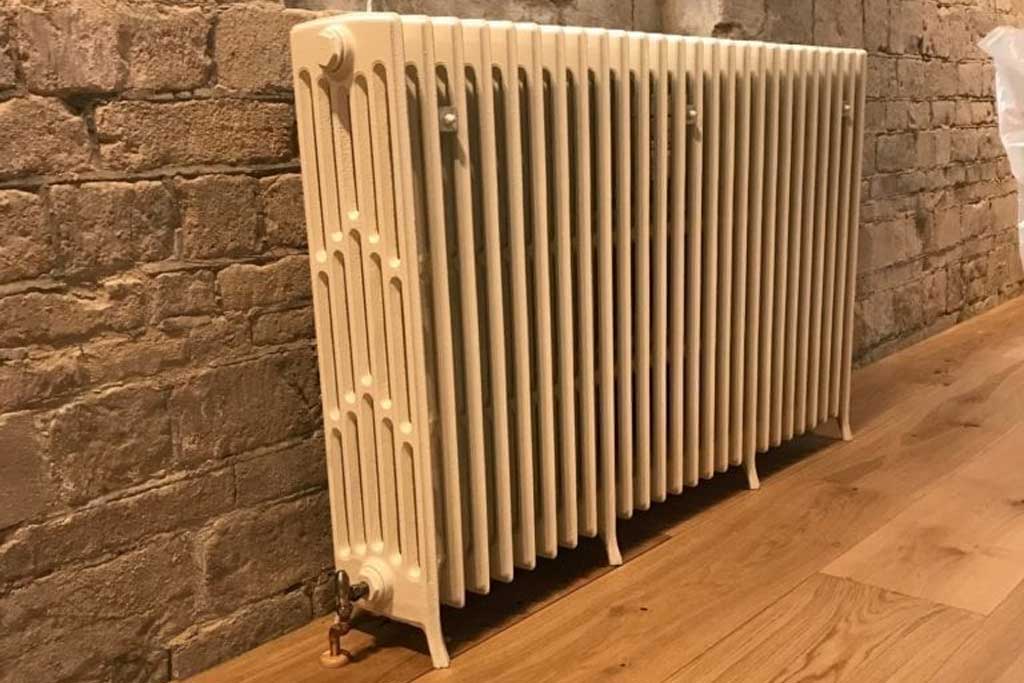-
Free Delivery Over £1000
-
0% Finance Available
-
10 Year Guarantee
-
Made In The UK

If you are looking for an energy-efficient choice for your next radiator, then cast iron should be your first go. Not only does it provide higher energy savings but also offer more automated functional support. Cast iron has thicker density which makes it heavier compared to steel. Moreover, it also comes with much better heat retention.
So even after switching off the power source, the radiator stays hot for a longer duration. As a result, you get much more efficient heating for a longer span of time. But these are not the only qualities of cast iron radiators.
Let’s discuss why you should choose cast iron radiators over other heating systems. This blog covers the different advantageous aspects of cast iron radiators which will enable you to make an informed decision till the end of this blog.
Cast iron radiators are renowned for his or her remarkable sturdiness and toughness. Unlike a few present day heating structures that may have a shorter lifespan, forged iron radiators can last for generations. In fact, many ancient homes nevertheless rely on the same solid iron radiators set up a long time in the past. This longevity is due to the strong nature of cast iron, that’s highly resistant to corrosion and put on.
Firstly, forged iron, the primary fabric utilized in those radiators, is thought for its excellent electricity and resistance to wear and tear. It is relatively proof against corrosion, that’s a commonplace difficulty in many heating systems that use steel or other materials liable to rust. This resistance to corrosion ensures that cast iron radiators can resist the check of time, even in humid or damp environments.
Secondly, the design of solid iron radiators contributes to their durability. They are usually constructed as a strong piece with no seams or joints that may weaken through the years. This monolithic creation enhances their structural integrity, making them much less vulnerable to leaks or cracks in comparison to structures with more than one additives or welded seams.
Additionally, cast iron radiators have a high thermal mass, letting them deal with frequent heating and cooling cycles without experiencing thermal pressure or fatigue. They can undergo the enlargement and contraction related to temperature fluctuations, which may be a mission for different heating structures which can develop cracks or leaks through the years.
In precision, the sturdiness of cast iron radiators is attributed to the robust nature of forged iron, their monolithic production, and their capacity to withstand temperature versions. These elements lead them to a long-lasting and dependable choice for heating systems, ensuring they could offer efficient warmth for generations without widespread upkeep or replacement wishes.
Cast iron radiators have a high thermal mass, because of this they can soak up, save, and radiate warmth effectively. When hot water or steam flows through the radiator’s inner channels, the cast iron material heats up slowly however retains warmness for an prolonged period.
This thermal inertia guarantees a steady and cushty room temperature as the radiator keeps on emitting heat even after the heating device turns off. In contrast, some other heating structures, along with forced-air, supply warmth quickly however can lead to temperature fluctuations.
Moreover, cast iron radiators depend upon natural convection for heat distribution. As air close to the radiator warms up, it will become less dense and rises, creating a convection cutting-edge that attracts in cooler air from the room. This move guarantees that warmth is calmly distributed in the course of the gap, minimizing bloodless spots and drafts.
In pressured-air structures, the air is blown, which could result in uneven heating and discomfort. Cast iron radiators may be easily zoned, bearing in mind specific control of warmth distribution in exceptional regions of a constructing. This zoning capability guarantees that you could tailor heating to specific needs and occupancy styles, lowering strength waste in unoccupied spaces. Other structures may battle to obtain the same degree of zoning precision.
Cast iron radiators are acknowledged for their quiet operation, which distinguishes them from many other heating systems, specifically pressured-air systems. This quietness is normally attributed to their design and mode of warmth distribution. Unlike compelled-air systems, which rely on blowers or fans to circulate heated air, forged iron radiators function passively through natural convection. Here’s how forged iron radiators provide quiet operation:
No Moving Parts: Cast iron radiators haven’t any moving parts within the radiator itself. In evaluation, forced-air systems have vehicles, enthusiasts, and blowers that generate noise as they operate. The absence of these mechanical components in forged iron radiators eliminates the supply of noise related to compelled-air structures.
Minimal Air Movement: Cast iron radiators heat rooms with the aid of radiating warmness from their surface and permitting warm air to upward push certainly. This method involves minimal air movement, because of this there may be no dashing or whooshing sound of air being pressured through ducts or vents.
Consistent Temperature: Cast iron radiators maintain a consistent temperature, which ends up in less frequent cycling on and stale compared to some other heating systems. The absence of frequent start-up and close-down cycles additionally contributes to the general quietness of the heating system.
Lack of Ductwork Noise: Forced-air systems require a community of ductwork to distribute heated air, and any troubles or blockages in the ducts can produce noise. Cast iron radiators, then again, do no longer rely on ducts, similarly lowering the potential for noise technology.
Cast iron radiators offer extremely good fitness advantages over other heating systems, mostly due to their approach of warmth distribution and their effect on indoor air nice. Here’s how cast iron radiators provide these advantages:
Improved Indoor Air Quality: Unlike compelled-air heating systems, which blow air through ducts and vents, forged iron radiators function through natural convection. This means they don’t circulate allergens, dust, or pollution at some stage in the gap. In comparison, pressured-air structures can fire up and distribute these particles, probably exacerbating allergic reactions and respiratory troubles.
Maintained Humidity Levels: Cast iron radiators do not dry out the air inside the identical way that some different heating methods, like electric powered or fuel furnaces, can. Dry indoor air can result in discomfort, dry skin, and breathing troubles. By preserving a more comfortable degree of humidity, forged iron radiators contribute to better universal health and luxury.
Consistent Comfort: Cast iron radiators offer even and steady heating, reducing the chance of temperature fluctuations inside a space. This steadier temperature can assist preserve consolation and decrease the stress at the body resulting from frequent temperature adjustments, leading to improved physical properly-being.
Cast iron radiators provide a tremendous gain in terms of low protection as compared to many different heating systems. This advantage stems from their design and fabric houses:
Minimal Moving Parts: Cast iron radiators have few, if any, shifting parts in the radiator itself. This stands in contrast to some other heating systems, such as forced-air systems with fans or blowers, which have mechanical additives that could put on out or require regular protection. The simplicity of cast iron radiators means there are fewer additives that could malfunction.
Corrosion Resistance: Cast iron is fantastically immune to corrosion, mainly while it is nicely maintained. Unlike some heating systems which can develop rust or different corrosion troubles, solid iron radiators commonly continue to be durable and dependable for decades. This resistance to rust removes the want for frequent portray or shielding coatings, decreasing protection requirements.
Longevity: Cast iron radiators are regarded for his or her long lifespan. They can last for generations, regularly outliving other heating device additives. This sturdiness reduces the want for replacements or upgrades, saving house owners money and time on renovation and installation fees.
Consistent Performance: Cast iron radiators tend to offer steady and dependable performance throughout their lifespan. They do not require common adjustments or tuning, as is frequently the case with complex heating structures. Once nicely installed and balanced, cast iron radiators hold to operate correctly without the need for constant monitoring or modifications.
Ease of Cleaning: Maintenance for solid iron radiators primarily involves periodic cleansing and bleeding of air from the device. This method is particularly truthful and may be finished with the aid of homeowners without the want for specialized capabilities or equipment. It is a hassle-loose venture in comparison to greater concerned upkeep procedures required through some other heating systems.
Traditional radiators provide a compelling set of benefits that set them aside from other heating structures. Their durability, green heat distribution, strength efficiency, aesthetic enchantment, low maintenance necessities, quiet operation, health advantages, and ancient importance make them a preferred desire for plenty of homeowners and property proprietors. Whether you are looking to decorate the comfort and aesthetics of your home or looking for a reliable heating solution for a commercial space, solid iron radiators provide a versatile and undying choice.




